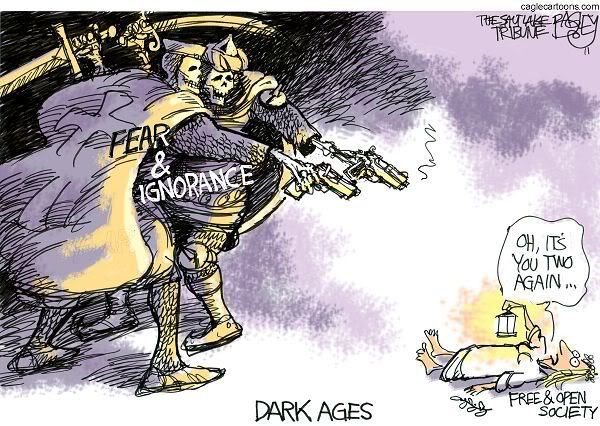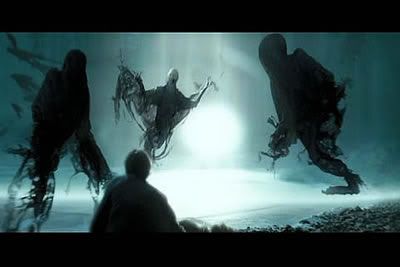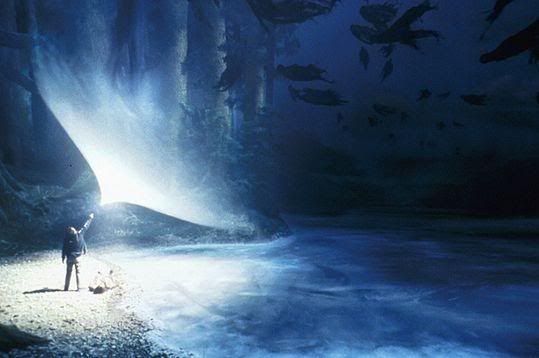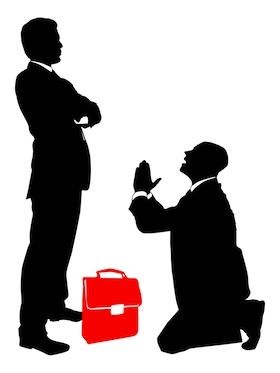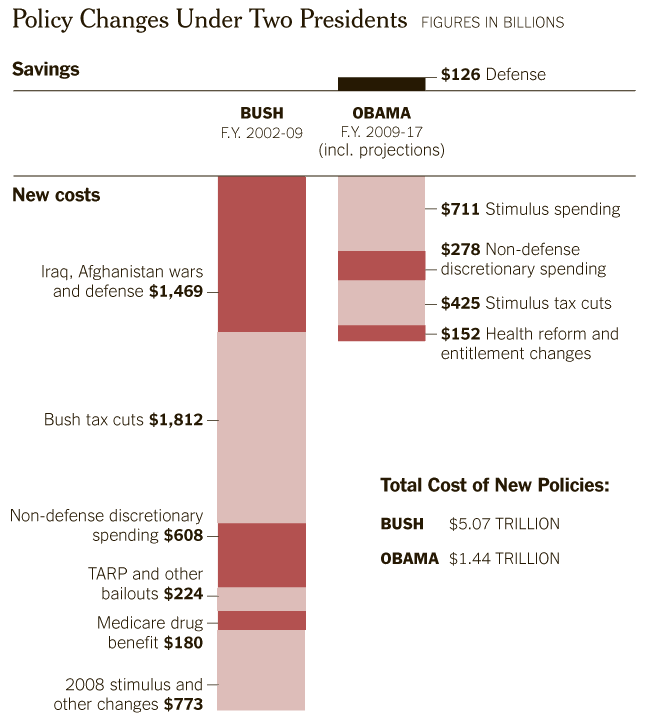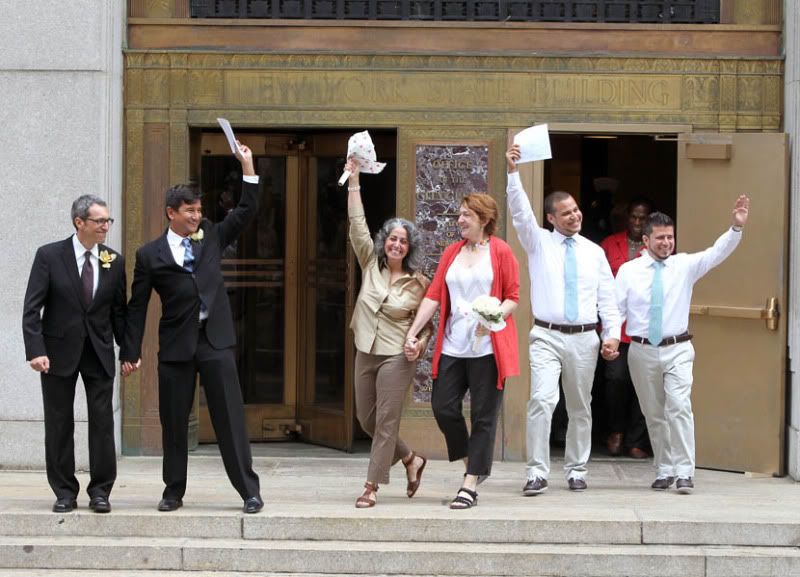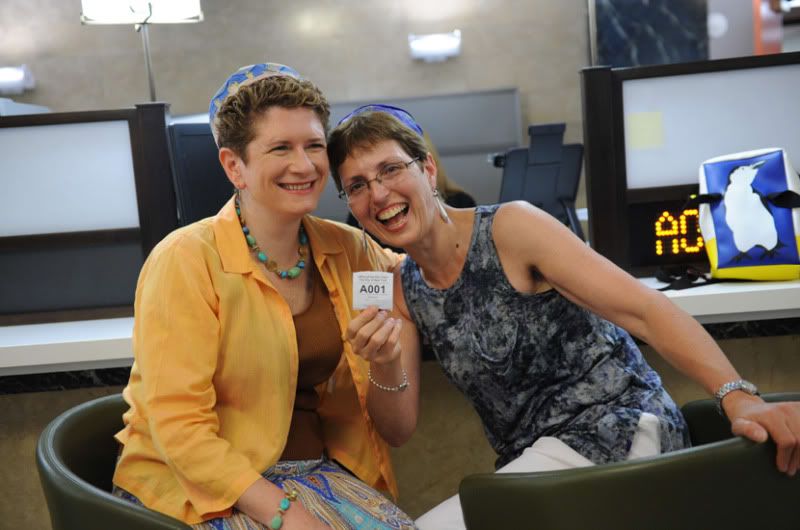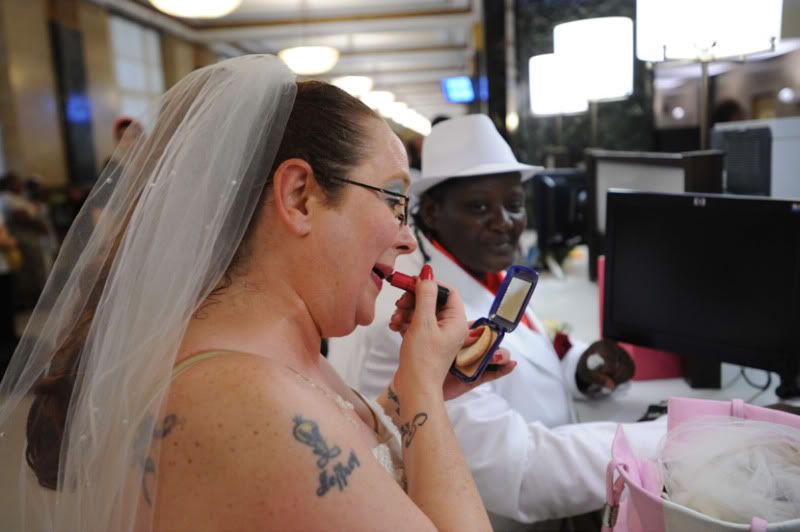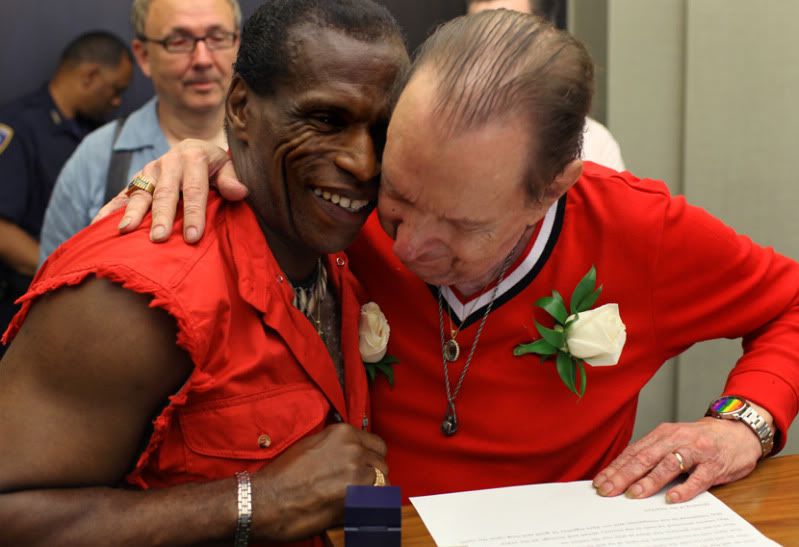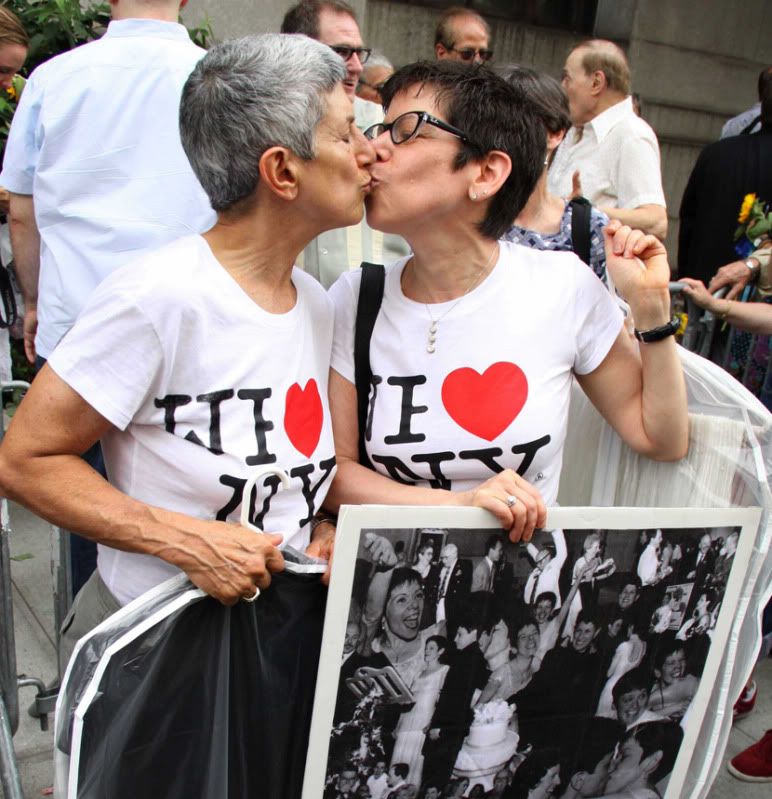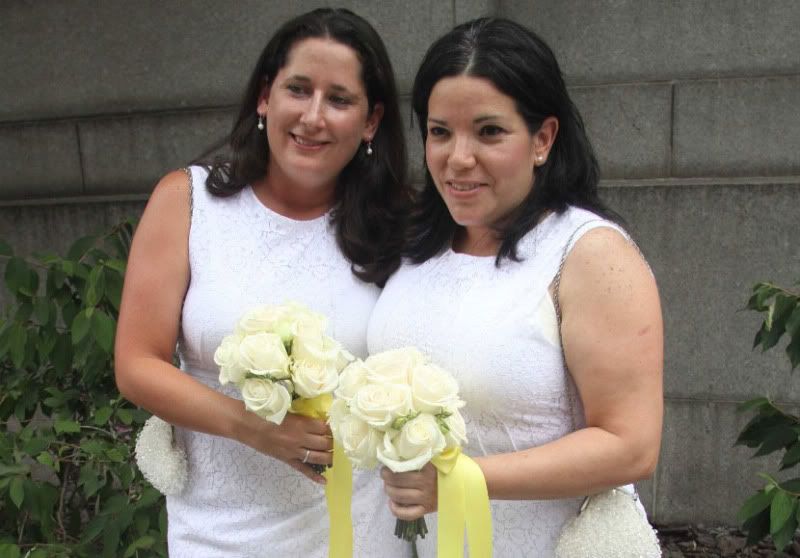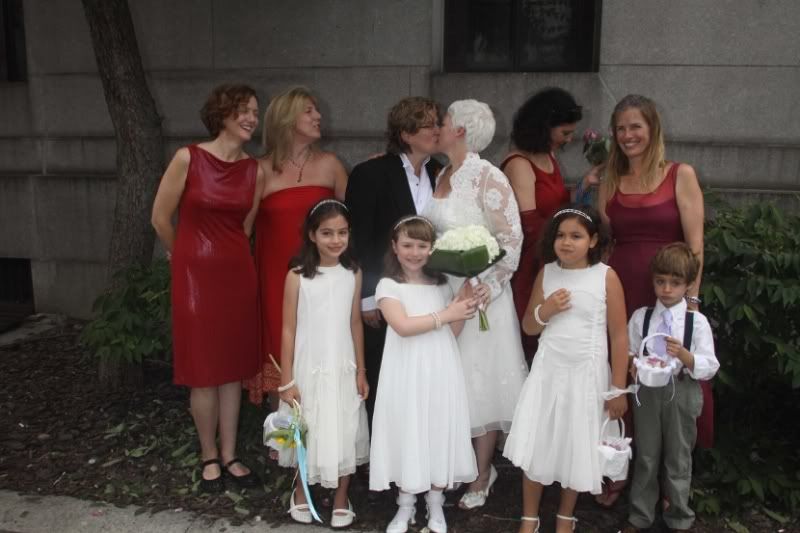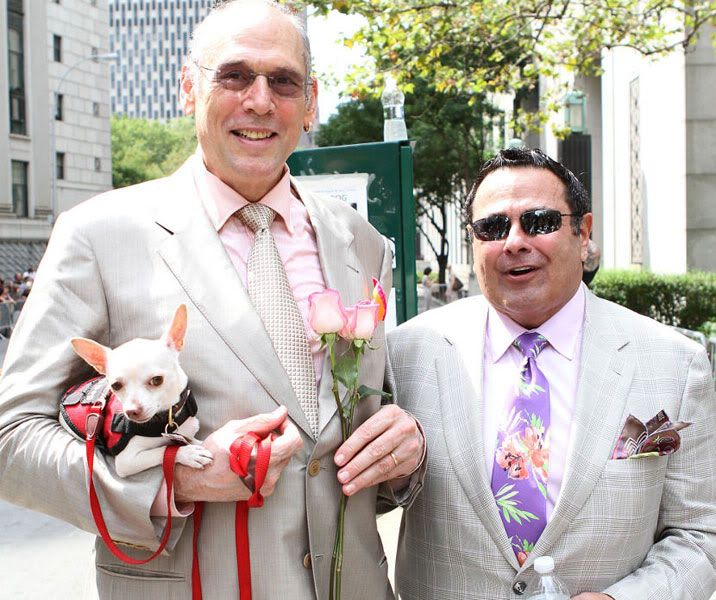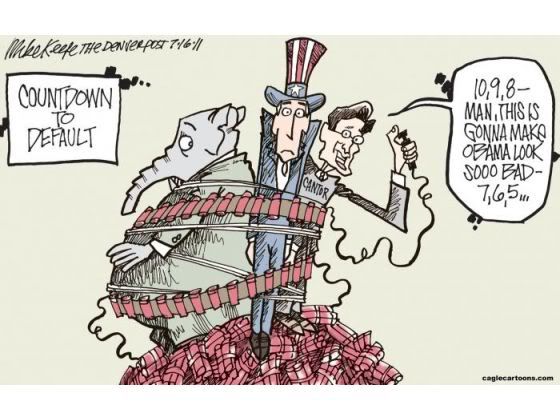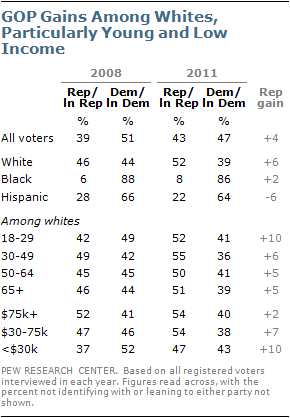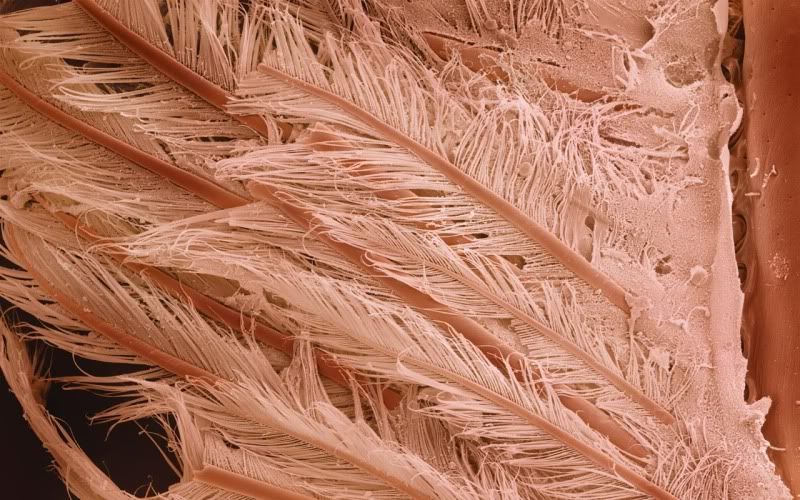I have to say that in the last few years I've grown a bit disheartened with the feminist movement in this country. Its not that my beliefs about the need to challenge patriarchy have diminished. Its that I think the cause of feminism has been relegated to issues that, while important, don't speak to the depths of my concerns. In other words, we're spending all of our energies fighting for reproductive and economic equality and forgetting all the ways that our entire ethos and culture are based on patriarchy. Years ago a blogger named
keres put it this way:
And I would argue that to dismantle partriarchy you would need to dismantle society in it's totality, and start over. It's no good just letting women in as "pseudo men" to societal structures so long formed by and to men's wants and desires.
Our societies are not "OK", except for the sexism, racism, heterosexism, ablism, etc. Our societies are intrinsically those things - they cannot be removed without a complete revisioning of the social compact. Nothing, and I do mean nothing, in an apartriachal society would look, sound, or feel even remotely the same as to what we have now.
In dismantling patriarchy, we have to see a deeper essence of how it affects us and what an embrace - rather than a rejection - of the feminine would mean. To illustrate a bit of that, here's Alice Walker talking about the Swa people of the Amazon in her book
We Are The Ones We've Been Waiting For.
They tell us that in their society men and women are considered equal but very different. Man, they say, has a destructive nature: it is his job therefore to cut down trees when firewood or canoes are needed. His job also to hunt down and kill animals when there is need for more protein. His job to make war, when that becomes a necessity. The woman's nature is thought to be nurturing and conserving. Therefore, her role is to care for the home and garden, the domesticated animals and the children. She inspires the men. But perhaps her most important duty is to tell the men when to stop.
It is the woman who says: Stop. We have enough firewood and canoes, don't cut down any more trees. Stop. We have enough meat; don't kill any more animals. Stop. This war is stupid and using up too many of our resources. Stop. Perkins says that when the Swa are brought to this culture they observe that it is almost completely masculine. That the men have cut down so many trees and built so many excessively tall buildings that the forest itself is dying; they have built roads without end and killed animals without number. When, ask the Swa, are the women going to say Stop?
Indeed. When are the women, and the Feminine within women and men, going to say Stop?
I don't use this to idealize the Swa culture. I'm happy that in ours, gender roles have become a bit more fluid. But I agree with the Swa when they say our culture, at it's roots, is almost completely masculine.
The passage from Walker's book reminded me of the work of Riane Eisler, who is best known for her book
The Chalice and the Blade. In it, she posits that we are living in a "dominator" (blade) society since the end of the Neolithic agrarian age and that prior to that time, archeology shows a more "partnership" (chalice) model for most cultures. She says:
The underlying problem is not men as a sex. The root of the problem lies in a social system in which the power of the blade is idealized - in which both men and women are taught to equate true masculinity with violence and dominance and to see men who do not conform to this ideal as too soft or effeminate.
The ethos of our patriarchy then is this idea of dominance as the way to power. We're seeing this run amok these days in how our current political situation is described. The whole idea of compromise is the essence of partnership and is inconceivable to someone dedicated to dominance...the blade is idealized.
In order for dominance to be effective, it must be rooted in fear and insecurity. People are seen as opponents (or worse yet - enemies) to be defeated and subjugated. The blade is the weapon of choice.
And so the flames of fear and insecurity are fanned while threats/hostages are made/taken in an attempt to subjugate the opposition. Any reaction other than to fight back on those terms is viewed as capitulation and derided as "weak," "pussy," and not "manly enough."
Those are the terms on which so much of our political situation are labeled and understood. All of this rests on the idea of a hierarchy of power with those at the top calling the shots and anyone who wants to take them on having to remove them in an endless game of "king of the hill."
But
as I've talked about before, dominance is only one kind of power. There is also the power of partnership. It rests on the principle of "power with" instead of "power over." The feminine in all of us (both men and women) knows of this power, it just needs to be remembered and reawakened. Its the kind of power Marge Piercy talks about in her poem
For Strong Women.
A strong woman is a woman who craves love
like oxygen or she turns blue choking.
A strong woman is a woman who loves
strongly and weeps strongly and is strongly
terrified and has strong needs. A strong woman is strong
in words, in action, in connection, in feeling;
she is not strong as a stone but as a wolf
suckling her young. Strength is not in her, but she
enacts it as the wind fills a sail.
What comforts her is others loving
her equally for the strength and for the weakness
from which it issues, lightning from a cloud.
Lightning stuns. In rain, the clouds disperse.
Only water of connection remains,
flowing through us. Strong is what we make
each other. Until we are all strong together,
a strong woman is a woman strongly afraid.
(emphasis mine)
